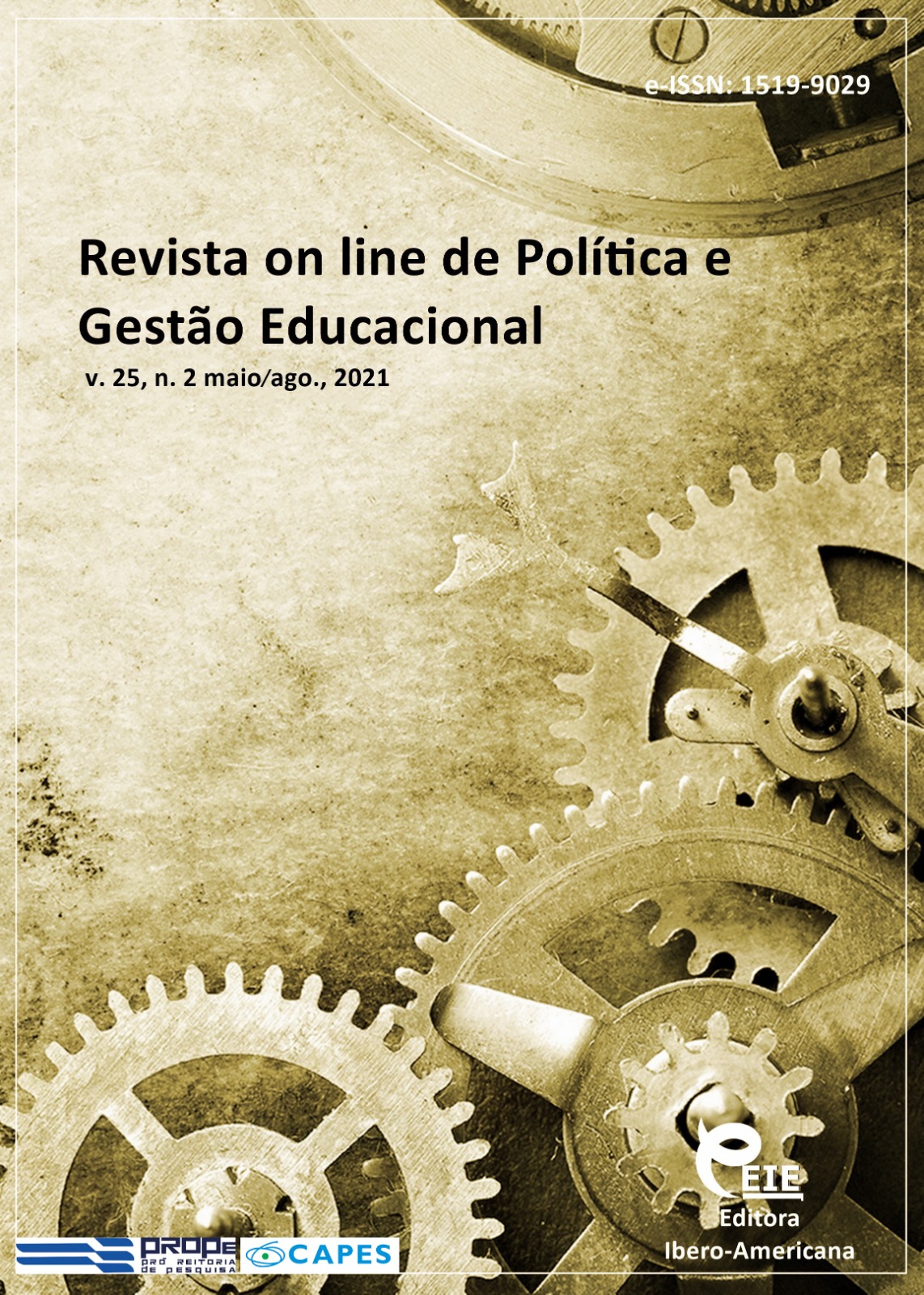From historical aspects to the intentions of inclusion of black people in the contemporary context
DOI:
https://doi.org/10.22633/rpge.v25i2.15013Keywords:
Inclusion, Social movement, Marginalization, Discrimination, PrejudiceAbstract
This theoretical essay aimed at outlining some space/time in the 20th century in which the black people’s social movement faced a revolution in the search for respect and mitigation of racism, discrimination and prejudice processes since they suppressed these individuals, considered them delinquents and, consequently, discriminated them regularly. We pointed out some moments of the history of the Brazilian society and their organizational adequacy in Eurocentric reference and norms, besides black militancy, with its idiosyncrasies, as essential factors to acknowledge differences that need to be debated. We ended the essay by carrying out a critical/reflexive analysis of the latest government’s social policies in the search for inclusion as a key of empowerment, protagonism and comprehension of the black people’s place in History. Education, as one of the inclusion acts, is shown in the text as an element that intertwines the reflexive/critical process and militancy in the social order in the contemporary world.
Downloads
References
A carne. Intérprete: Elza Soares. Compositor: Seu Jorge, Marcelo Yuka, Wilson Cappellette. In: DO CÓCCIX até o pescoço. Intérprete: Elza Soares. São Paulo: Tratore, 2002. 1 CD, faixa 6 (4min).
ALMEIDA, S. Racismo estrutural. São Paulo, SP: Editora Jandaíra, 2020.
BRASIL. Constituição (1988). Constituição da República Federativa do Brasil. Brasília, DF: Senado, 1988.
BRASIL. Lei n. 9.394, de 20 de dezembro de 1996. Lei de Diretrizes e Bases da Educação Nacional. Diário Oficial da União: Seção 1, Brasília, DF, n. 248, p. 27833, 23 dez. 1996. PL 1258/1988
DOMINGUES, P. Movimento negro brasileiro: alguns apontamentos históricos. Tempo, v. 12, n. 23, p. 100-122, 2007.
FONSECA, D. Políticas e ações afirmativas. São Paulo, SP: Selo Negro, 2009.
FREIRE, P.; NOGUEIRA, A. Que fazer: teoria e prática em educação popular. 4. ed. Petrópolis, RJ: Vozes, 1993.
IPEA. Instituto de Pesquisa Econômica Aplicada. 2019. Disponível em: https://www.ipea.gov.br/portal/. Acesso em: 10 jan. 2021.
LEÃO, D. Paradigmas contemporâneos de educação: Escola tradicional e escola construtivista. Cadernos de pesquisa, São Paulo (SP), n 107, p. 187-206, 1999.
MANTOAN, M. Inclusão escolar: o que é? por quê? como fazer? São Paulo, SP: Summus, 2015.
ONU. Organização das Nações Unidas. Declaração Universal dos Direitos Humanos. Paris, 1948. Disponível em: http://www.onu-brasil.org.br/documentos/. Acesso em: 10 maio 2020.
PAIXÃO, M.; THEODORO, M. ... para depois dividir: notas sobre Reforma Previdenciária e assimetrias raciais no Brasil. Em Pauta, Rio de Janeiro (RJ), v. 18, n. 45, p. 130-147, 2020
SANTOS, G. A invenção do “ser negro”: um percurso das ideias que naturalizam a inferioridade dos negros. São Paulo, SP: Educ/Fapesp; Rio de Janeiro, RJ: Pallas, 2002.
SANTOS, G. Relações raciais e desigualdade no Brasil. São Paulo, SP: Selo Negro, 2009.
Published
How to Cite
Issue
Section
License
Copyright (c) 2021 Revista on line de Política e Gestão Educacional

This work is licensed under a Creative Commons Attribution-NonCommercial-ShareAlike 4.0 International License.
Manuscritos aceitos e publicados são de propriedade da Revista on line de Política e Gestão Educacional. É vedada a submissão integral ou parcial do manuscrito a qualquer outro periódico. A responsabilidade do conteúdo dos artigos é exclusiva dos autores. É vedada a tradução para outro idioma sem a autorização escrita do Editor ouvida a Comissão Editorial Científica.











